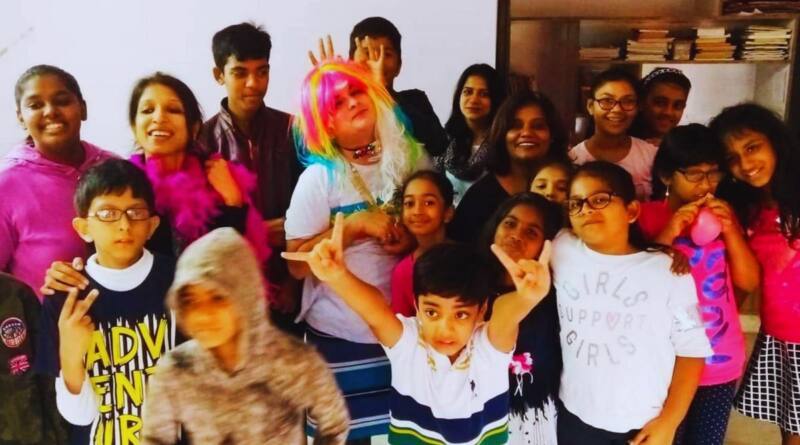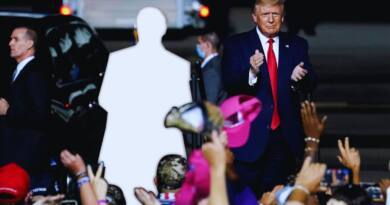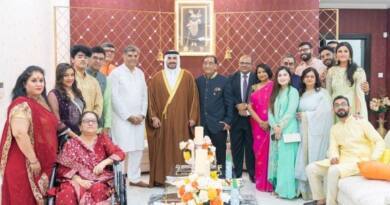Look At Indian Drag Artists: Spread- Strong and Clear Message
The children reacted eagerly to Sastry’s self-composed Telugu tune around sexual orientation diversity.
Sastry claims that when he wears colourful outfits and visits schools, children start to tune in to him and his messages out of sheer curiosity.
“So, I take that opportunity to join fun and funniness into my appearance, to have a conversation around sex correspondence, consideration, and diversity.”
Sastry brings his act to schools over Hyderabad, as more learning establishments in India open their entryways to drag craftsmen, trusting to raise mindfulness among children on issues such as sexual orientation, personality, and secure sex.
India’s LGBTQ community has made a critical advance in a long time. In 2018, India decriminalised consensual sex between men. Whereas same-sex marriage isn’t perceived, a 2021 Ipsos study found that 66 percent of urban Indians accept that same-sex couples ought to have the same rights to embrace children as hetero couples.
This developing open-mindedness in a customarily preservationist nation has created an environment in which a few schools welcome drag artists.
Drag specialists claim that singing, moving, and telling stories about approximately gender-neutral anecdotal characters to children raises mindfulness almost to correspondence and empowers children to ask about transgender people’s lives, as well as pride walks, same-sex relational unions, and LGBTQ rights.
Rich Rainstorm, 30, a Delhi-based drag craftsman whose genuine title is Aishwarya Ayushman, said children may not get the “legislative issues” of sexual orientation segregation and societal demeanours towards homosexuality, but they do get it when she tells them to “be themselves.”
“Through my execution, I need children to feel that it’s alright for a boy to like pink and play with dolls, whereas it is alright for a young lady not to like that colour or be more uproarious and expressive than boys,” Storm said in a statement.
Clarifying that her exhibitions are aiming to instill compassion in children so that they don’t “fear the obscure,” Rainstorm expressed that when she was growing up, no one told her it was affirmative to veer off from standards, so it took her much longer to overcome societal boundaries that prevented her from tolerating herself.
“Subsequently, I need these children to figure it out early and not feel segregated against,” Rainstorm said in a statement.
Maya, 36, a Bengaluru-based drag queen who wanted to be known as Alex Mathew, has been performing at schools for a long time. In 2016, instructors at a worldwide school in Bengaluru welcomed him to perform to raise awareness about sexual orientation issues after a male understudy was bullied by his classmates for wearing a sari on dress-up day.
He accepts that his drag exhibitions raise sexual orientation mindfulness, which Indian understudies are not exposed to through standard sex instruction in schools.
In India’s schools, sex instruction is conflictingly executed, with issues related to mental well-being, sexual and regenerative wellbeing, and sexual viciousness being erratically secured by auxiliary and senior auxiliary schools across the country.
According to a 2021 report by the non-profit Zero Period, 71% of the 2,000 respondents did not get sex instruction in school. Furthermore, about two out of every five respondents detailed encountering sexual bullying.
Three states within the United States—Tennessee, Texas, and Montana—have as of late passed laws denying drag craftsmen from performing in particular open spaces, fundamentally to avoid drag ruler story hour occasions in which they examined children.
Drag craftsmen in India are right now managing with online trolls who refer to them as having “terrible impacts” on children, according to Monsoon. Maya said that a few netizens indeed share doctored recordings to dishonestly accuse drag artists of displaying sexually unequivocal substances before children.
Sastry underlined that drag appears in schools as “amazingly secure” for children and not sexually expressed, expressing that their objective is to pick up acknowledgment of “strange culture as a standard culture.”
“My drag shows in schools spin around subjects of acknowledgment of ‘others’ and self-love, with the point of providing profitable learning encounters for youthful minds,” said Sastry. She adjusts society craftsmanship shapes such as pagati veshalu, a shape of people theatre from the southern state of Andhra Pradesh, and chhau move from the eastern state of West Bengal.
Oshun Maia, a learning accomplice at Hyderabad’s Vision Rainbow school who welcomed Sastry to a drag execution in 2019, said sexuality could be a but frequently ignored angle of human advancement and development in India, causing it to be neglected and distorted. Drag performances, Maia explained, are a way to “peel off the useless excess” from important topics.
“The message is strong and clear: this can be ready to explore and explore within each other,” Maia said in a statement. “I believe the curiosity of children towards gender and its many forms isn’t to be ashamed of; therefore, we offer spaces to discuss them.”




